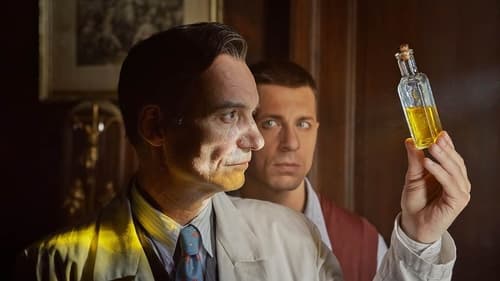
Editor
About Ela a rebellious artist struggling with the deep gray everyday life of Poland in the 1980's, including family problems and personal demons originating in bipolar disorder.

Editor
Durante os anos 50, quando a antiga Tchecoslováquia estava mergulhada no totalitarismo, a surpreendente história de um homem com o suposto dom de curar levaria a um julgamento histórico.

Editor
The devil's magic quill keeps a tight record of sins. But when this precious artifact is stolen, a demon must find a way to make things right again.

Editor
Janina Duszejko, uma ex-engenheira, astróloga e vegetariana, vive numa pequena aldeia pitoresca nas Montanhas dos Sudetos. Uma noite, ela tropeça no cadáver de um vizinho. O caçador morreu de forma misteriosa. Há vestígios de cascos de cervos na sua casa... Com o tempo, cadáveres dos VIPs locais são descobertos. Todos eles eram caçadores. Duszejko tenta convencer a polícia local de que eles foram assassinados por animais selvagens. À medida que outros VIPs são encontrados mortos, Duszejko se torna a principal suspeita. Quando a casa paroquial local queima e o padre, que também é o capelão da associação de caça local, morre entre as chamas, a polícia está quase certa do culpado. Uma história sutilmente humorística de amizade, amor à natureza e vingança, com personagens únicos e ambíguos. Uma mistura que vai do do drama psicológico à história de detetive de tipo pastiche.

Editor
“The fact that I’m playing myself doesn’t mean that it’s me.” Four old schoolmates, today well-known Czech actors (Pavel Liška, Tomáš Matonoha, Josef Polášek and Marek Daniel), decide to make a movie together. Their ambitious colleague Jan Budař takes up directing duties and financing has arrived from Poland. What started out pleasantly enough, however, soon goes awry. Liška’s pronunciation difficulties, Daniel’s alter ego Havlát, and Matonoha’s financial machinations turn the shoot into a fight for survival. More than just a film about friendship and the absurdity of actors’ lives, director Marek Najbrt gives us a witty meditation on reality and illusion, and a unique take on the reality film genre. One of Pavel Liška’s on-set comments (“I didn’t know if I should act as if I were acting, or act as if I weren’t acting, or just not act at all”) illustrates the provocative nature of Najbrt’s subversive, quasi-documentary game.

Editor

Editor
Ice hockey is a Czech national obsession, and the country's victory over Russia in the 1969 World Championships, the year following the Soviet invasion, is a celebrated moment in its history. In Marek Najbrt's black comedy, the heroic exploits take place only on a black and white tv screen as a group of representative misfits gather and watch the game in a desolate village on the Czech border. While consisting of recognisable types, Najbrt's bleak portrait reveals a world of alcoholism, debt, racism, bigotry, and infidelity that trails behind the dreams of nationalism and bears little resemblance to the fantasies of the new consumerism. A clever and multi-levelled film, it provides a sharp antidote to the reconciliatory charms of the conventional Czech comedy.

Editor
Sympathetically modern for its time - it was 1937 - is the approach of a young factory director in the middle of a growing Bata-style town in the picturesque foothills of the majestic Tatra Mountains. But make no mistake, the protagonist is his wife Helena (Eliška Křenková). However, the determined gaze of the aspiring doctor, who is about to give birth soon, into her dream family future is suddenly overshadowed by the discovery of a dead body of a newborn baby in the courtyard of the pulsating factory. Helen's innate empathy, amplified by another condition, is not satisfied with a conspicuously quick solution to the mystery. A gripping detective drama with a progressive and deeply human take on a controversial subject not only just before the unsuspected war but decades later.






